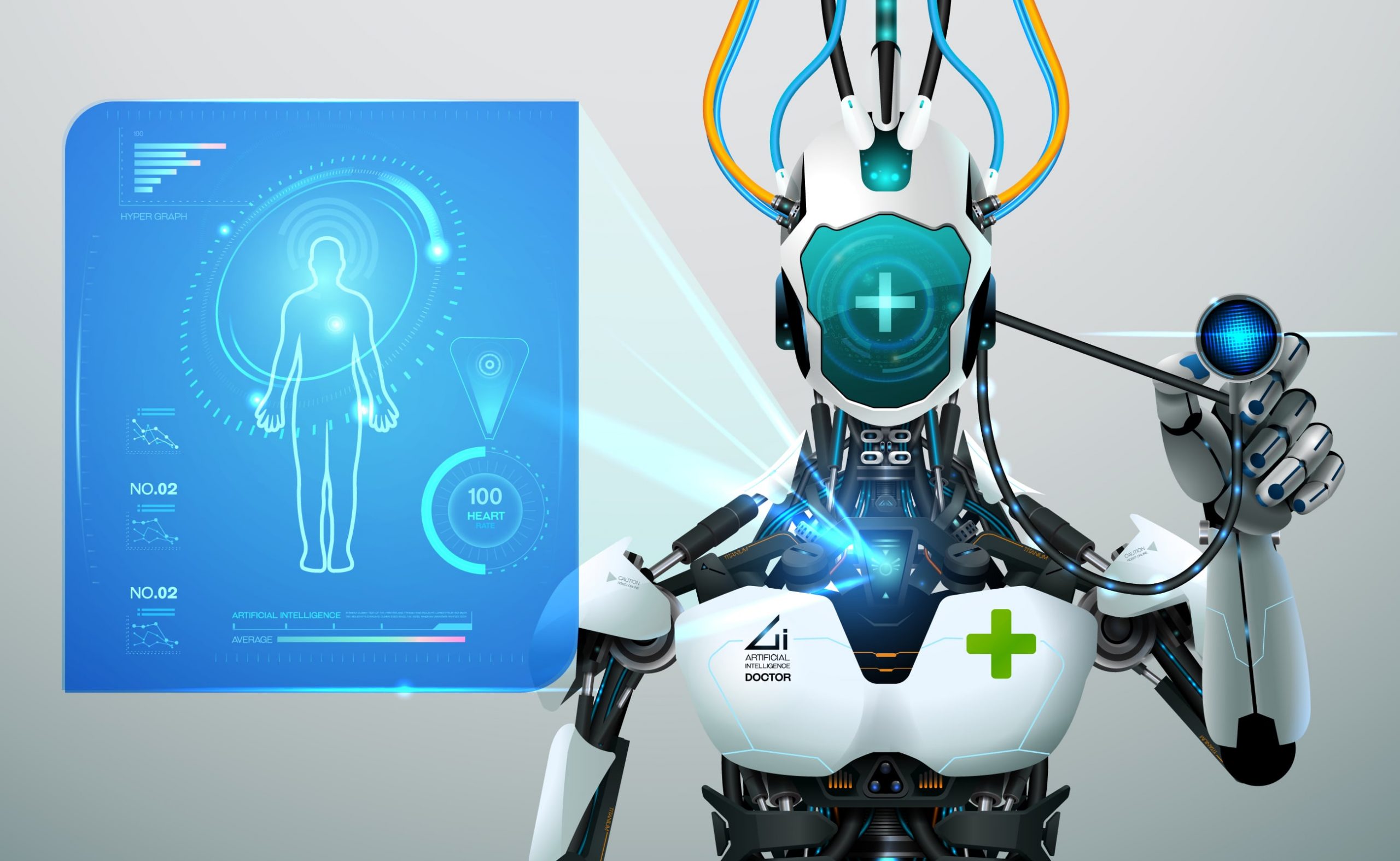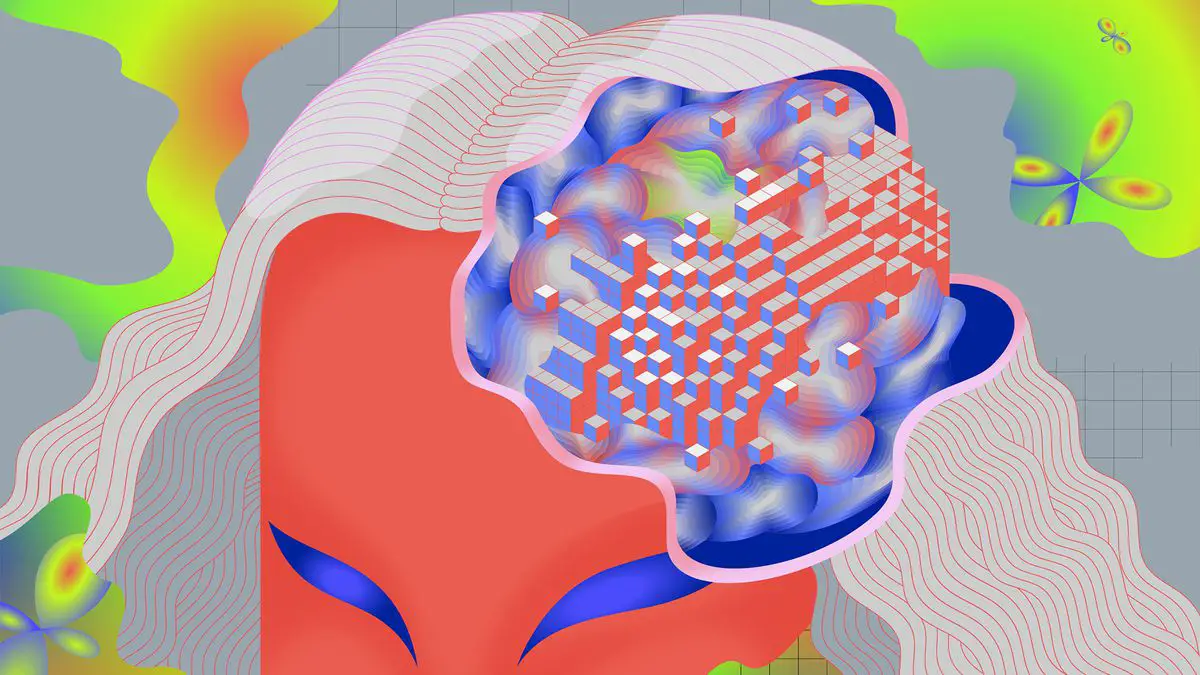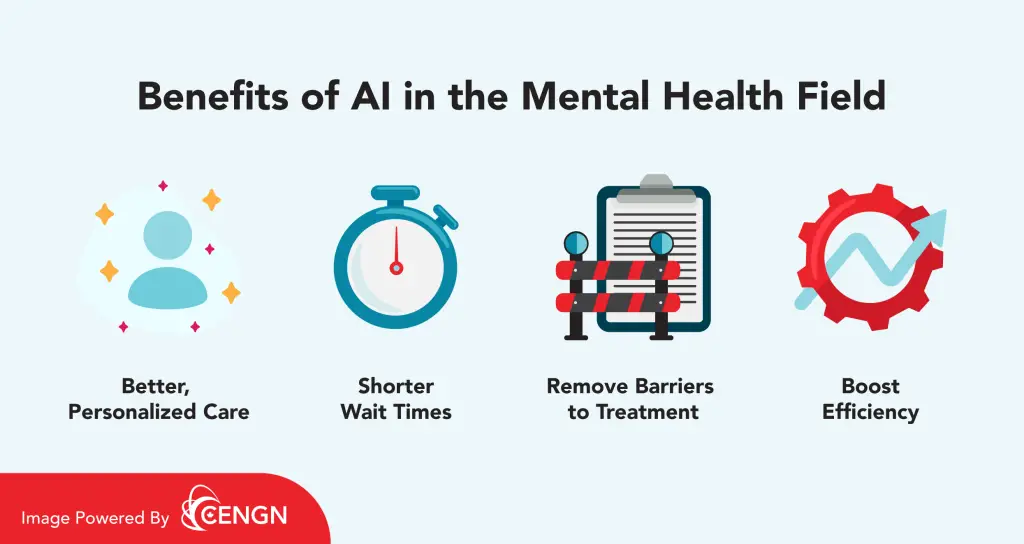AI and Mental Health: Opportunities for Diagnosis and Treatment

Artificial intelligence (AI) has emerged as a promising tool for transforming the healthcare industry, including the field of mental health. AI-powered solutions offer the potential to address the challenges of limited access to care, diagnostic delays, and the development of personalized treatments.

One significant benefit of AI in mental health is its ability to facilitate early diagnosis and screening. Machine learning algorithms can analyze vast amounts of data, including electronic health records, patient interviews, and physiological signals, to identify patterns and predict the likelihood of mental health disorders. This enables healthcare providers to detect conditions earlier, even before symptoms become severe. By catching mental health issues at an early stage, timely interventions can be implemented, potentially preventing long-term consequences.

AI-enhanced diagnostic tools also provide more objective and standardized assessments. Algorithms can process different types of data to draw insights that may be missed by human clinicians, reducing biases and increasing diagnostic accuracy. This ensures that patients receive appropriate care plans tailored to their specific needs.
Additionally, AI contributes to the development of personalized treatment approaches. By leveraging machine learning and data analytics, AI solutions can tailor treatments to each patient’s unique circumstances and symptoms. This involves identifying optimal medication combinations, therapy techniques, and self-management strategies that maximize treatment outcomes.
Furthermore, AI can enhance patient engagement and self-management through mobile apps and virtual therapy platforms. These tools offer convenient, on-demand access to mental health support, reducing barriers to care and promoting self-monitoring. Patients can record their experiences and symptoms, track their progress, and communicate with their healthcare providers remotely.
However, the integration of AI into mental health care also brings ethical considerations and concerns. These include privacy issues, the potential for bias in algorithms, and the need for appropriate training of healthcare professionals using these tools. It is essential to address these concerns to ensure responsible and ethical implementation of AI in mental health.
In conclusion, AI presents substantial opportunities for transformative advancements in mental healthcare. By enabling early diagnosis, personalized treatment, and patient engagement, AI can improve the lives of individuals with mental health challenges. As the field continues to evolve, ongoing research and responsible implementation of AI will be crucial to maximize its benefits and address potential risks.## Ai And Mental Health: Opportunities For Diagnosis And Treatment
Executive Summary
Artificial intelligence (AI) is rapidly changing the healthcare landscape, and its potential impact on mental health is particularly significant. AI can be used to improve diagnosis, treatment, and prevention of mental health conditions. This article provides an overview of the current state of AI in mental health, and discusses the opportunities and challenges for its future use.
Introduction
Mental health disorders are a major public health concern, affecting millions of people worldwide. Traditional methods of diagnosis and treatment are often time-consuming and expensive, and can be difficult to access in rural or underserved areas. AI has the potential to address these challenges by providing more accurate and efficient diagnosis, personalized treatment plans, and remote access to care.
FAQs
-
What are the benefits of using AI in mental health?
-
Improved diagnosis and treatment accuracy
-
Personalized treatment plans
-
Remote access to care
-
Early detection and prevention
-
What are the challenges of using AI in mental health?
-
Data privacy and security concerns
-
Potential for bias in AI algorithms
-
Lack of regulation and standardization
-
What is the future of AI in mental health?
-
Development of more sophisticated AI algorithms
-
Increased availability of remote care
-
Personalized therapies based on individual needs
Subtopics
1. AI-Assisted Diagnosis
AI algorithms can be trained on vast amounts of data to identify patterns and predict mental health conditions. This can assist clinicians in making more accurate diagnoses, especially in cases where symptoms are subtle or difficult to identify.
- Data collection: AI algorithms are trained on large datasets of patient records, brain scans, and other relevant data.
- Pattern recognition: AI can identify patterns in data that are not easily discernible by humans, such as subtle changes in brain activity or language use.
- Predictive models: AI can develop predictive models that can identify individuals who are at risk for developing mental health conditions.
2. Personalized Treatment Planning
AI can be used to create personalized treatment plans based on each patient’s individual needs. This can take into account their unique symptoms, medical history, and lifestyle factors.
- Individualized treatment: AI algorithms can analyze patient data to identify the most effective treatments for their specific condition and circumstances.
- Monitoring and adjustment: AI can continuously monitor patient progress and adjust treatment plans as needed, ensuring that they are receiving the most optimal care.
- Remote care: AI-enabled apps and devices can provide remote access to therapy and support, making it easier for patients to receive care in the comfort of their own homes.
3. Early Detection and Prevention
AI can be used to detect mental health conditions at an early stage, even before symptoms develop. This can help to prevent the onset of more severe symptoms and improve treatment outcomes.
- Risk assessment: AI algorithms can identify individuals who are at risk for developing mental health conditions based on factors such as genetics, family history, and lifestyle habits.
- Early intervention: Early identification of risk factors can allow for early intervention and prevent the condition from worsening.
- Prevention programs: AI can help to develop and implement targeted prevention programs for individuals who are at high risk for mental health conditions.
4. Remote Care
AI-enabled apps and devices can provide remote access to mental health care. This can be particularly beneficial for people who live in rural or underserved areas, or who have difficulty accessing traditional care.
- Virtual therapy: Patients can receive therapy sessions with licensed therapists over video or phone, making it more convenient and accessible.
- Self-help tools: AI-powered apps can provide self-help exercises, symptom tracking, and other resources to help patients manage their mental health.
- Chatbots: AI-powered chatbots can provide emotional support and guidance to patients in a conversational manner.
5. Mental Health Research
AI can be used to conduct research on mental health conditions, identify new treatments, and improve our understanding of the brain.
- Large-scale data analysis: AI can process and analyze large datasets to identify patterns and insights that are not easily discernible by humans.
- New drug discovery: AI can be used to identify new drug targets and develop personalized therapies for mental health conditions.
- Brain mapping: AI can help to map the brain and understand how it functions, which can lead to new insights into mental health conditions and their treatment.
Conclusion
AI has the potential to revolutionize the field of mental health. By improving diagnosis, treatment, and prevention, and providing remote access to care, AI can help to ensure that everyone has access to the mental healthcare they need. As AI continues to develop, we can expect to see even more innovative and effective uses of this technology in mental health.
Keyword Tags:
- AI in mental health
- Diagnosis
- Treatment
- Prevention
- Remote care

